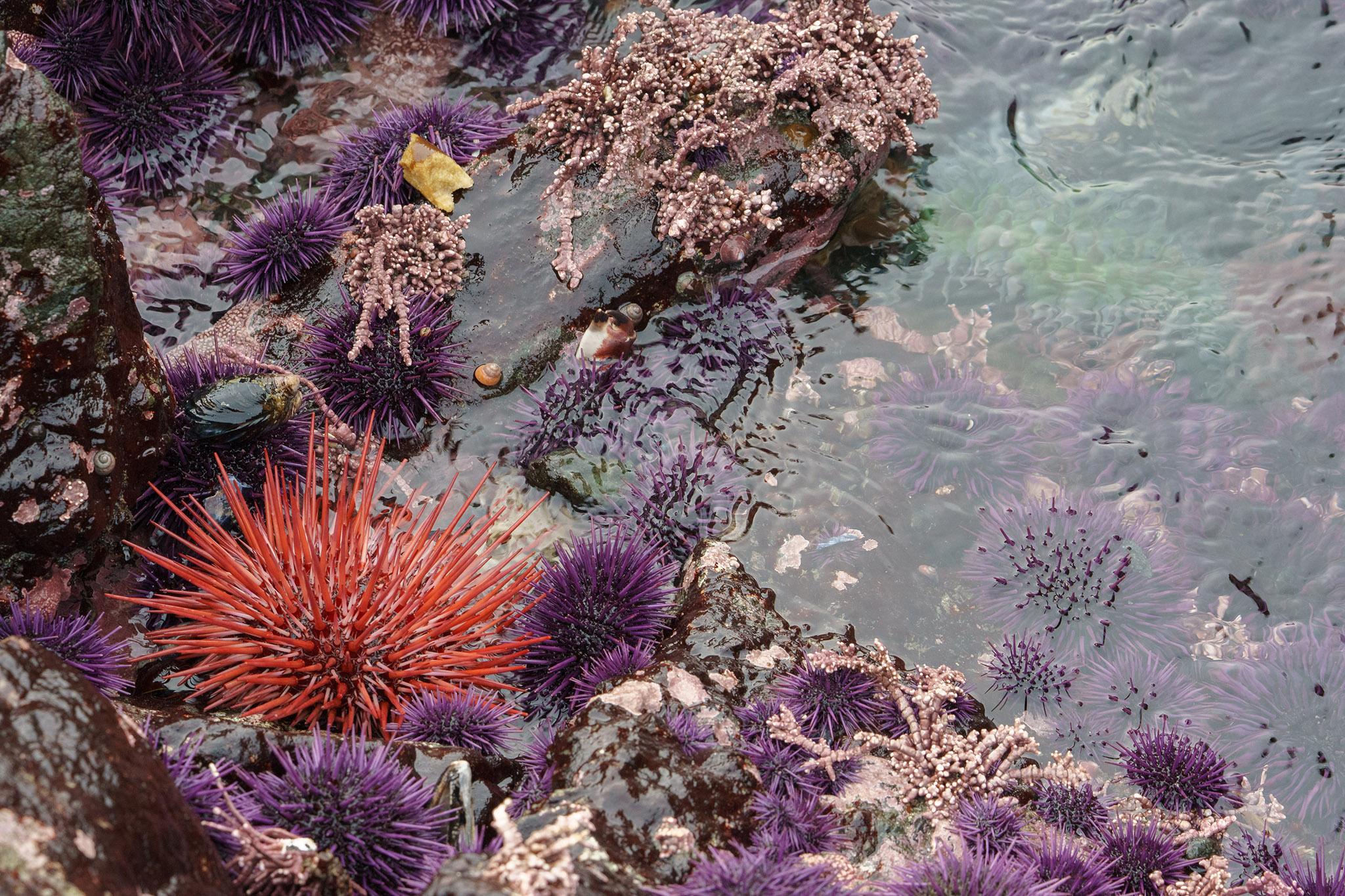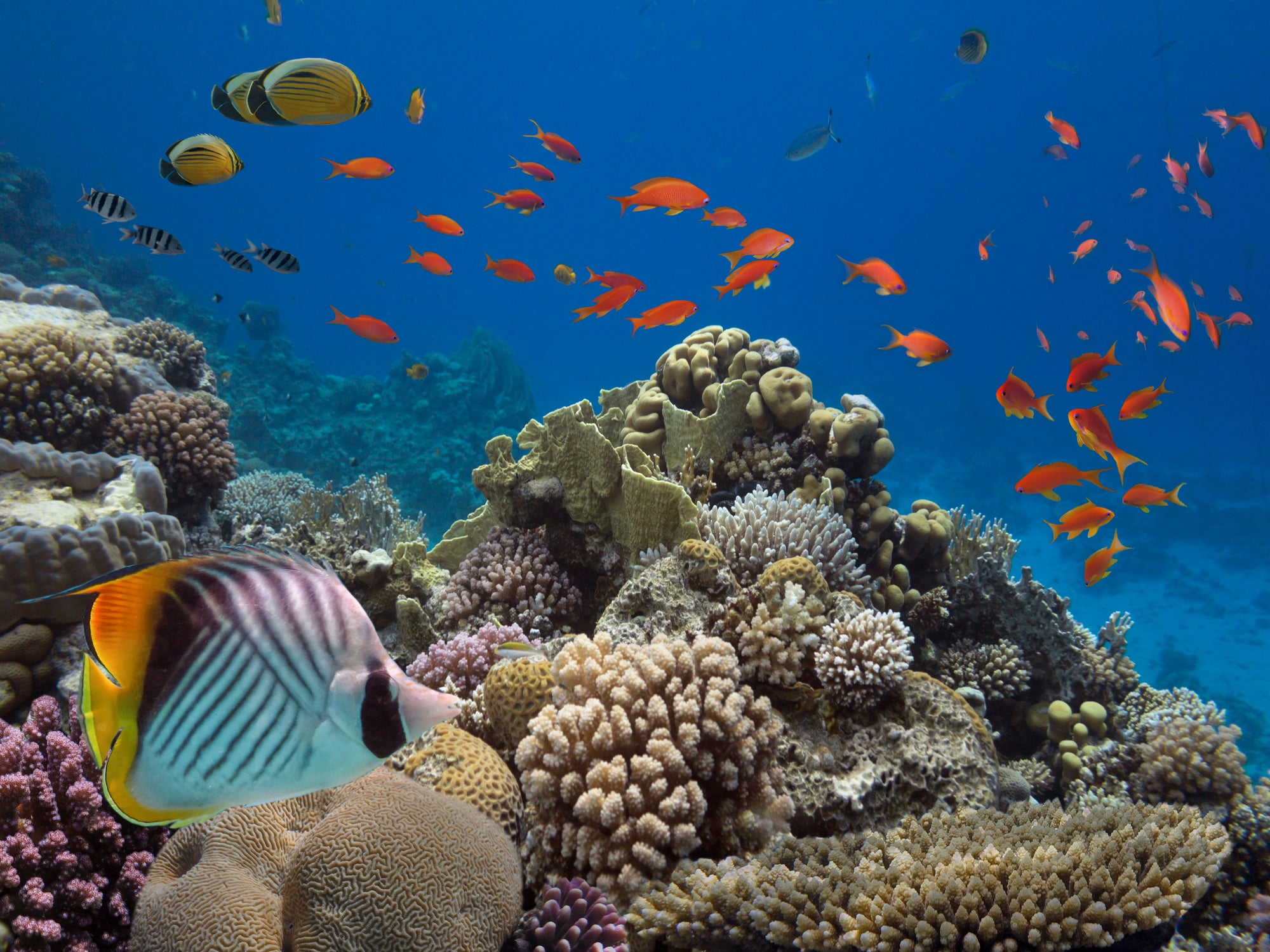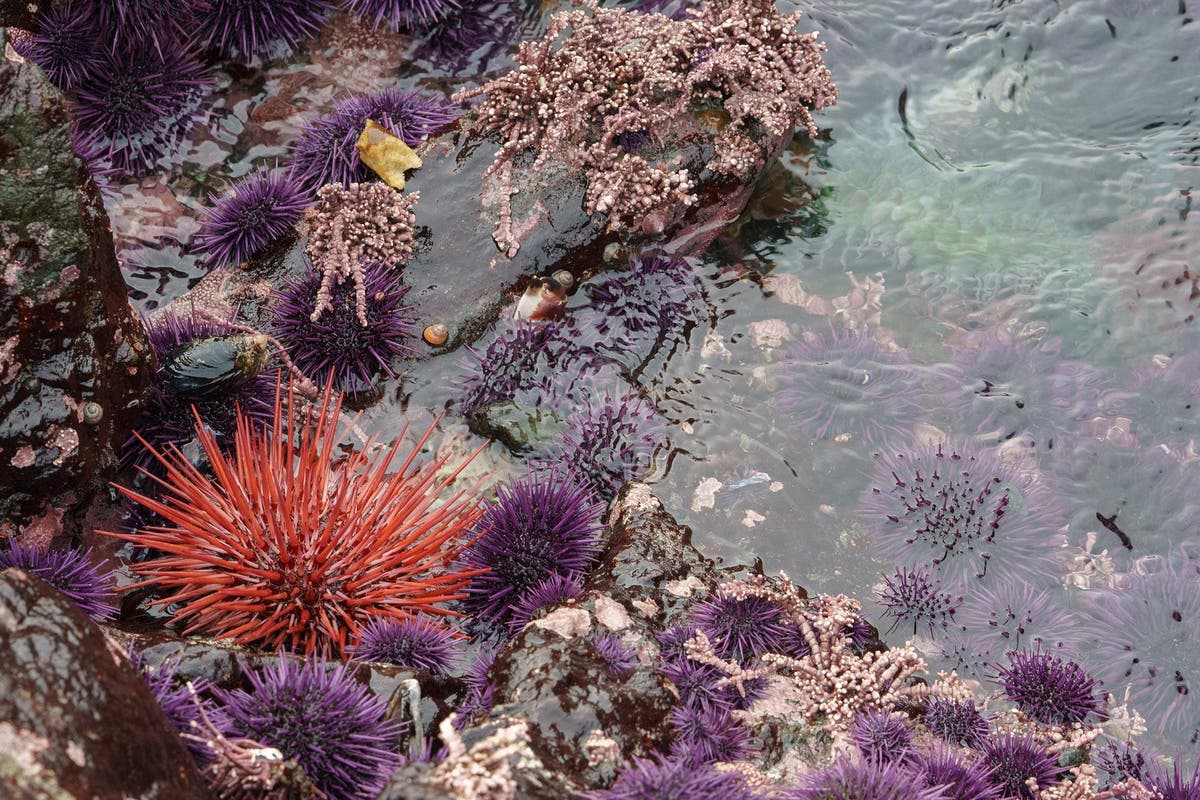A mysterious plague of sea urchins has spread across the world, driving the creature to near extinction in some areas and threatening delicate coral reef ecosystems, a new study suggests.
The research, published in the scientific journal Current Biologyfound populations of two species of sea urchin—the long-spined Diadema setosum and barbed strips Echinothrix calamaris – may have completely disappeared in parts of the Gulf of Aqaba, the Red Sea, the Gulf of Oman and the Western Indian Ocean.
The deaths have been attributed to a single-celled egg-shaped microorganism with hairpins, which causes the sea urchins to lose their spines, suffer tissue breakdown and eventually die within two days.
Tel Aviv University marine biologist and lead author of the study, Dr Omri Bronstein, said The Independent that witnessing the mass deaths was “heartbreaking”.
“These are the animals we know and love so much,” he added.
“When alive, the family of sea urchins affected by the disease are completely black with very long and sharp spines, but when they die they lose their spines and tissues, showing their completely white and smooth skeleton.
“They almost look like bleached corals, but heavier in the sense that even the spines are gone – imagine seeing a hairless human with their internal skeleton exposed. It’s a tough look.”
One of the most notorious sea urchin mass die-offs occurred in the Caribbean Sea in 1983, affecting a species of black spiny urchin called Diadema antillarum . At the time, scientists were unable to identify the cause of the event due to limited technology.
Nearly four decades later, another mass die-off event of the same species occurred in the Caribbean Sea in 2022. Initially, researchers were unable to find any traces of bacterial or viral infections in the creatures, but eventually identified the microorganism behind the disease .
After the death of the Caribbean, the first known mass mortality of Diadema setosuma species related to Diadema antillarumwas reported in the eastern Mediterranean Sea in 2023, with the same pathogen found to be responsible.

Now that the disease-causing microorganism has spread to multiple regions in the Middle East, study researchers are calling for immediate monitoring and conservation action to protect these sea urchins.
“Functionally, the family of sea urchins attacked by this pathogen is already extinct in the Red Sea,” he said. “It’s a serious threat now to the entire Indo-Pacific.”
He added that there is a “real risk” that these urchins will become functionally extinct worldwide: “All you need is a ship sailing in the Red Sea and a few weeks, and the pathogen is there.”
Dr Bronstein warned that the mass die-offs could result in a rapid growth of algae, which the urchins normally feed on. This in turn can disrupt the health of coral reefs in affected regions.
“My worst fear is that we will have significant algal blooms, leading to drowning and death of coral reefs in overfished and less protected areas around the world,” he said. “Once that happens, even if the sea urchins came back, it would be too late for the reefs.”

Dr. Bronstein also said The Independent The loss of coral reefs would affect people in Europe and the West as much as those living near these tropical marine forests, disrupting political stability, food security, cancer drug research and economies in addition to biodiversity.
He added: “We are still trying to understand some key questions – for example, why here, why now? How did this pathogen really travel from the Caribbean to the Red Sea?”
He is working with colleagues to complete a study that hopes to answer these questions and manage the crisis.

